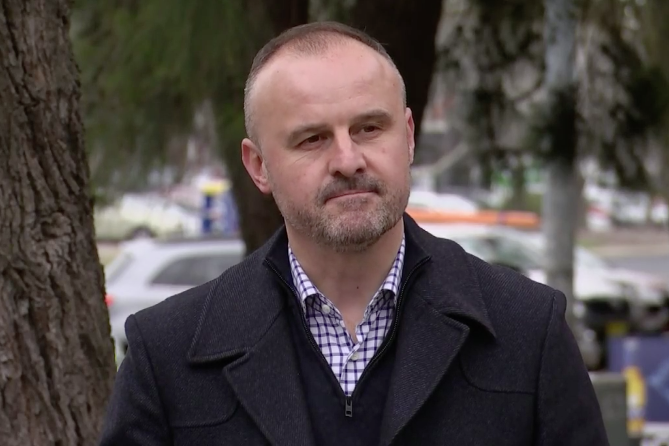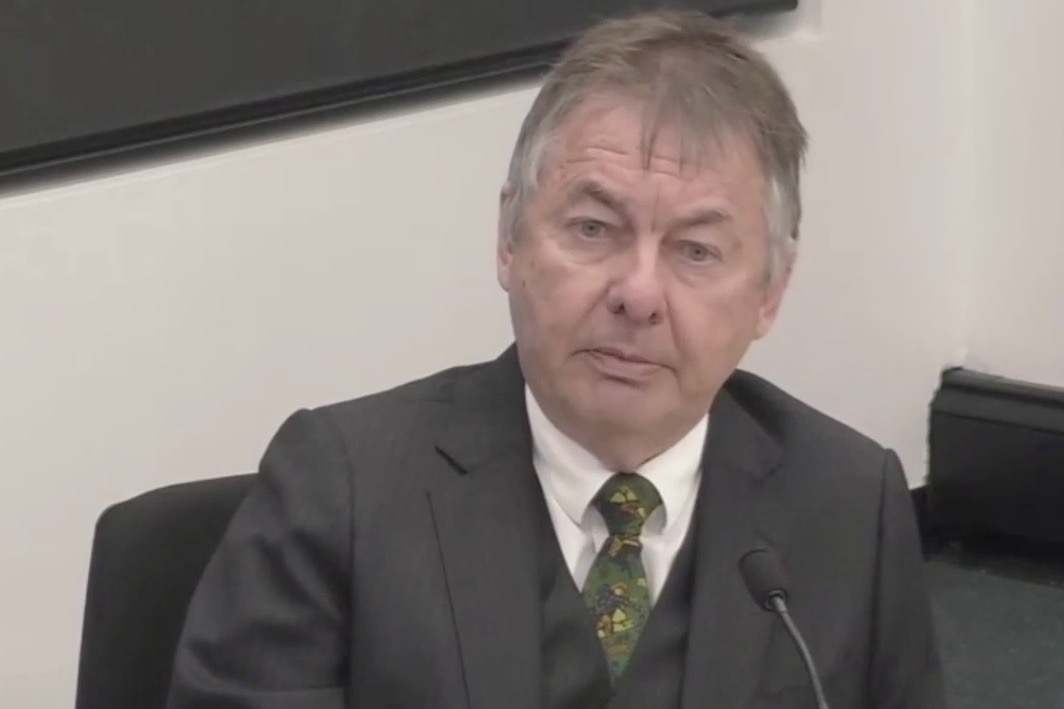
There is no reasonable reason for any delay in publicly releasing the Sofronoff Inquiry report, writes legal affairs commentator HUGH SELBY. Why then is the government so keen to keep the results of this inquiry away from the ratepayers who funded it?
A “Weekend Australian” article reveals: “In a shock move, the ACT government will keep secret the findings of the Sofronoff inquiry into the prosecution for rape of Bruce Lehrmann for at least a month”.

It goes on to explain: “In a statement… Mr Barr said that subject to the contents of the [Sofronoff] report, and any legal implications, he intended to table all, or part, of the report during the August parliamentary sitting and ‘may provide an interim response to some, or all, of the recommendations’ at that time.”
“Subject to the recommendations, a final government response may take several months,” the paper quotes him as saying.
Which leads to this question, Why is the report not being released in its entirety when it is received?
A Saturday search of the ACT government’s media releases makes no reference to Friday’s statement. How few, or how many news outlets received this “last-minute” update is unknown.
What is well known is that the government:
- has had many weeks to consider the likely findings and take advice on appropriate responses;
- has extended DPP Drumgold’s leave;
- did nothing to ensure that the alleged actions of ACT Legal Aid, as reported by Bruce Lehrmann, to improperly interfere in the conduct of his defence, and “blacklist” his counsel, were referred to the inquiry, which is supposed to be into the ACT Criminal Justice System; and,
- renewed the appointment of the Victims of Crime Commissioner when it knew that her conduct would be criticised during the inquiry that it had already set up. There was no obstacle to her being given an acting appointment pending the findings of the inquiry.
There are reports to government that require careful management in their release to we, the wider public.
A recent example is the Robodebt Report to the Commonwealth Government. Commissioner Holmes included a “not to be published” volume that includes material that may lead to criminal/disciplinary actions against individuals.
Another example is the Independent National Security Monitor’s current reviewing of one part of our national “security” laws. It will not be surprising if parts of his report are not released to the public.

Commissioner Sofronoff’s inquiry examined issues of how a much publicised sexual assault allegation was investigated and taken to trial. No security issues, no raising of subsequent criminal proceedings, no issues of privacy that couldn’t be easily handled.
At the close of the public hearings the commissioner set out the timetable, including how any person the subject of draft adverse comment would have the opportunity to respond to those draft findings. Hence any such person has already been given “fair process”. There will be no surprises.
It follows that if there is any recommendation that any person should be seeking another job then the government ought already know the gist of the reasons.
What’s more, if any person needs to leave their job there are well tried means to ensure that happens, those being either or both of legislation declaring that an identified job position is vacant and a pay out.
Given the questions and answers at the public hearings, and the DPP taking leave, the government must know already what the report is likely to say about the position of the DPP. They don’t need any more time to mull over that. Draft press releases should already be written.
If there are any professional disciplinary consequences flowing from the report then those would be the responsibility of the AFP and the ACT Supreme Court. Nothing in that for the government to consider.
What may require close attention by our Legislative Assembly is any recommendations as to rewording the tests to be used by police and prosecutors for the initial charging of a defendant and the charges that the prosecution then takes to trial.
Early in the public hearing the commissioner expressed an interest in resolving the differences as to police and prosecutor approaches to the “test” for charging.
There may be a debate within the AFP (which is a national police force) if there is a different “charge” test used by its officers, depending on whether they are working in ACT policing or in one of the other regions.
Likewise, the “test” followed by prosecutors around the Australian jurisdictions is uniform. However, its implementation is variable, depending upon office culture and who is the director.
Even clear words are not enough. As demonstrated in my website post last week about the Commonwealth’s current prosecutions of whistleblowers, the clear indicia of “public interest” can be ignored.
No reasonable reason for any delay in releasing the report (expected to be delivered on Monday, July 31) has been given.
Why then is the government, the same government that avoids questions about its urban planning decisions, the takeover of Calvary Hospital, and its “no cost is too much” commitment to an expensive, outmoded light rail, so keen to keep the results of this inquiry away from the ratepayers who funded it?
We’ll just have to be patient in the hope that we’ll be wiser eventually. Meanwhile, all to Barr, none to us.
Hugh Selby’s free podcasts on “Witness Essentials” and “Advocacy in court: preparation and performance” can be heard on the best known podcast sites.
Who can be trusted?
In a world of spin and confusion, there’s never been a more important time to support independent journalism in Canberra.
If you trust our work online and want to enforce the power of independent voices, I invite you to make a small contribution.
Every dollar of support is invested back into our journalism to help keep citynews.com.au strong and free.
Thank you,
Ian Meikle, editor









Leave a Reply